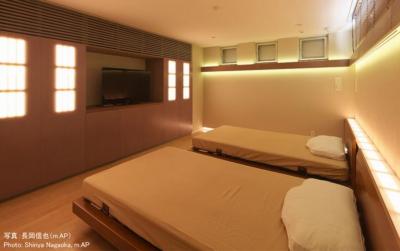Researchers from the University of Tsukuba in Japan have compared the effects of LED and OLED lighting on physical processes that occur during sleep. The researchers show that OLED exposure has a reduced effect on sleep architecture and energy metabolism.

OLED devices emits white light which contains less blue light compared to LED devices, and this does not lead to any effect on sleep architecture, but it does reduce energy expenditure and core body temperature. In addition, fat oxidation during sleep was significantly lower after exposure to LED compared with OLED. Thus OLED lighting has a similar effect to that of dim light.
The findings suggest that specific types of light exposure may influence weight gain, along with other physiological changes. It could be that choosing an OLED light source before sleep could have positive effects.
Exposure to blue light has been linked to many health issues many times in the past - and one of the advantages of OLED panels has always been lower blue light emission compared to LED based technologies. This is true for both OLED lighting and displays.

